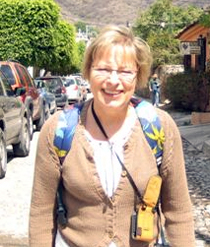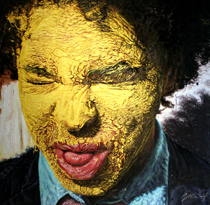Pages: 1 2
Without a Home
Johanna Van Zanten
The perplexing thing is, that I never knew home until I left it. I lost my sense of home when I emigrated. Before that, I knew where I belonged, who my people were and what my language was. Without realizing it, I possessed a cultural identity and automatically assumed ownership of all the places in my home country, so well known from study books in school. I recognized without a second thought the places in photos and movies shown in the news media and those described in the stories told by others.
I was very familiar with my nation’s history, with the last World War’s effects on our population, especially on our dramatically and devastatingly decreased Jewish citizenry. I knew when the 100-year war with Spain ended and how the Prince of Orange arrived at his job as the first Father of the Nation. Dialogue I overheard contained no underlying secrets to discover. Nobody tried to figure out what exactly I was saying and no misunderstandings occurred because of my use of a word that does not quite fit. No one laughed at my mispronunciations or questioned my ability to work on writing assignments within a group. I always had excellent grades for any language project in school, regardless whether in French, English, German, or Dutch; I was destined for greatness, or at the very least, a good job. I took all that for granted, until my 33rd year.
On April Fools’ Day, two days after my birthday, I left for Canada, in possession of a fair level of fluency of the language, or so I thought. After all, the music of my generation was in English created by British and American artists, and sometimes by Canadian musicians, although the distinction between the latter two was not very clear to me at the time. I had given myself a year to find out whether I could become comfortable enough to stay and live with my chosen new man. What could be the big deal, right? A year should be good enough.
I now recognize the enormity of that step and its effects on the rest of my being, on my personality, and the stress it exerted on my brain processes, not in the least on my sense of identity. No level of preparation could have armed me against the effects of the loss of the underpinnings of that identity, which was based on a shared national history, on the methods used in the education system, on the beliefs about, and attitudes towards, others’ religions, and on the level of critical thinking that the nation’s leaders encouraged. When I lost the privilege of automatically knowing what people around me were talking about, I felt as if I were floating in a no man’s land. It was almost like being born again at an adult age but needing to learn a whole new set of skills.
Home, what is that anyway? I have struggled with that concept ever since I left the safety and comforts of my country of birth. Since then, I can only feel a nostalgic sense of what home was. When I fly over my home country preparing to land before feeling the bump of the wheels hitting the tarmac, I feel a familiarity that is like a soothing blanket softly laid out over me by an unseen hand. Whenever I meet people born in my country of origin an immediate familiarity arises within a few sentences of our exchange – as if they were a twin removed at birth for some reason, and whom I never met until this moment.
Before I left home forever, I travelled a lot to other countries during a few weeks of the year. In hindsight I now see those trips as experiments. I took in the flavours and natural beauty of foreign sites, so different from home; all that was new to the eye and challenged the senses was exciting to me. On return home, I made comparisons and weighed the benefits of home; maybe a longing to return to that beautiful place lingered.
But, the return to what is familiar is also soothing; to fall back into a routine takes no effort. My brain got to process the new impulses and I put my conclusions into the back of my mind. This country is like this and my evaluation is just that: a story to share with others. Although I enjoyed the experiences of travel very much, leaving my country forever is nothing like going away for a vacation. My brain cannot process that much information for that long; it cannot return to equilibrium and is challenged beyond anything that is comfortable. Stressed, I become insecure.
I search for the familiar. My tongue is getting twisted with the foreign language and my brains seem to work extremely slow; I cannot grasp anymore what my companions are joking about, I miss the nuances, have no clue what those words in that context mean. I am looking for a reprieve. I go to bed early.
My new friends are completely opposite from my old friends, their lives filled with rough teasing and much drinking – none of it makes sense to me. For months on end my ability to adapt is stretched and stretched, until it feels as if only a thin line connects me to sanity. It’s a lucky circumstance that I find work with mentally challenged young people. They have patience, they see no differences, and they accept me unconditionally.
Slowly I feel my acute stress levels decrease. I can feel my level of familiarity rise: my now very small world of the group home, with only a few people around me, makes my day to day life predictable, and the routine gives me a bit of security.
Pages: 1 2




